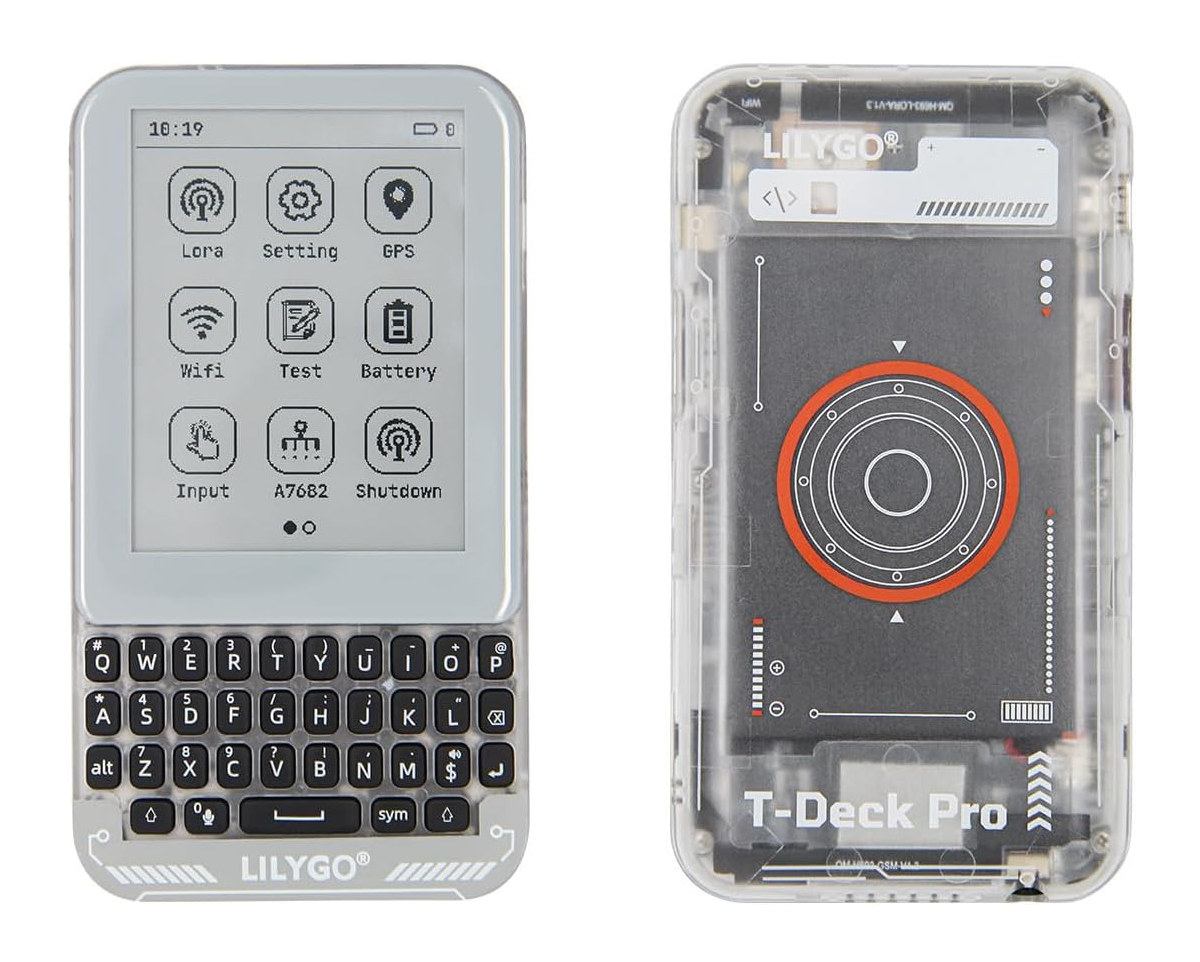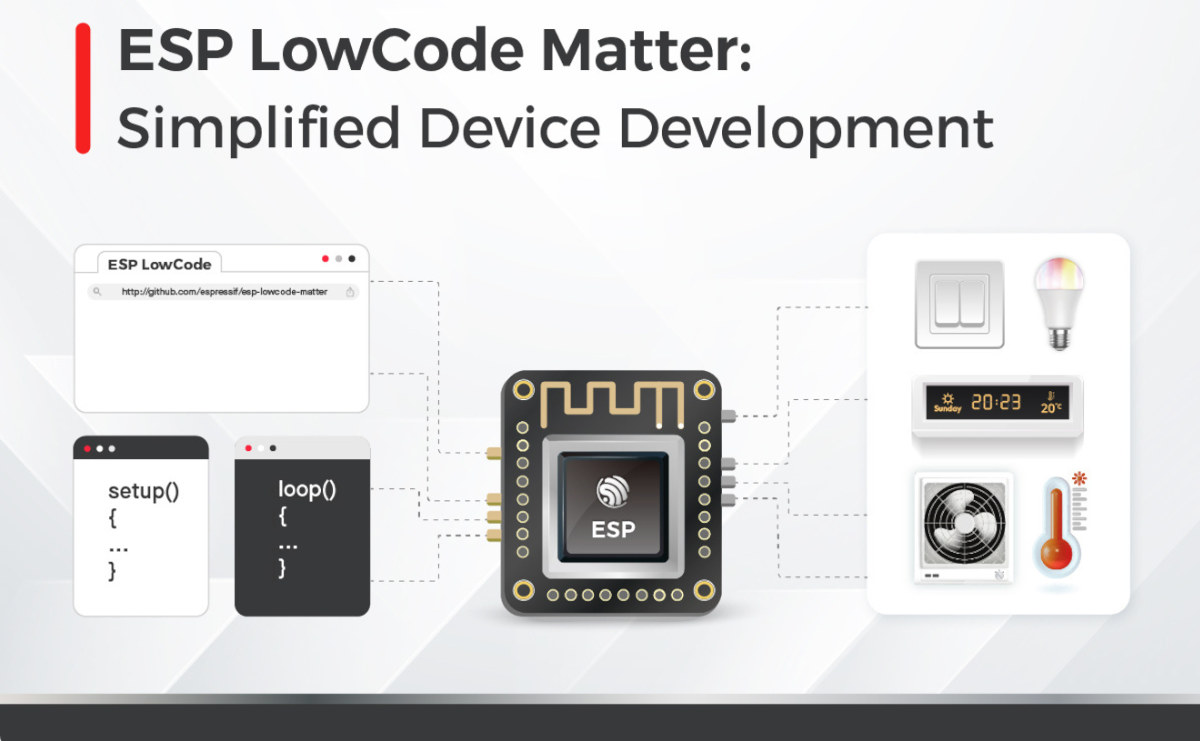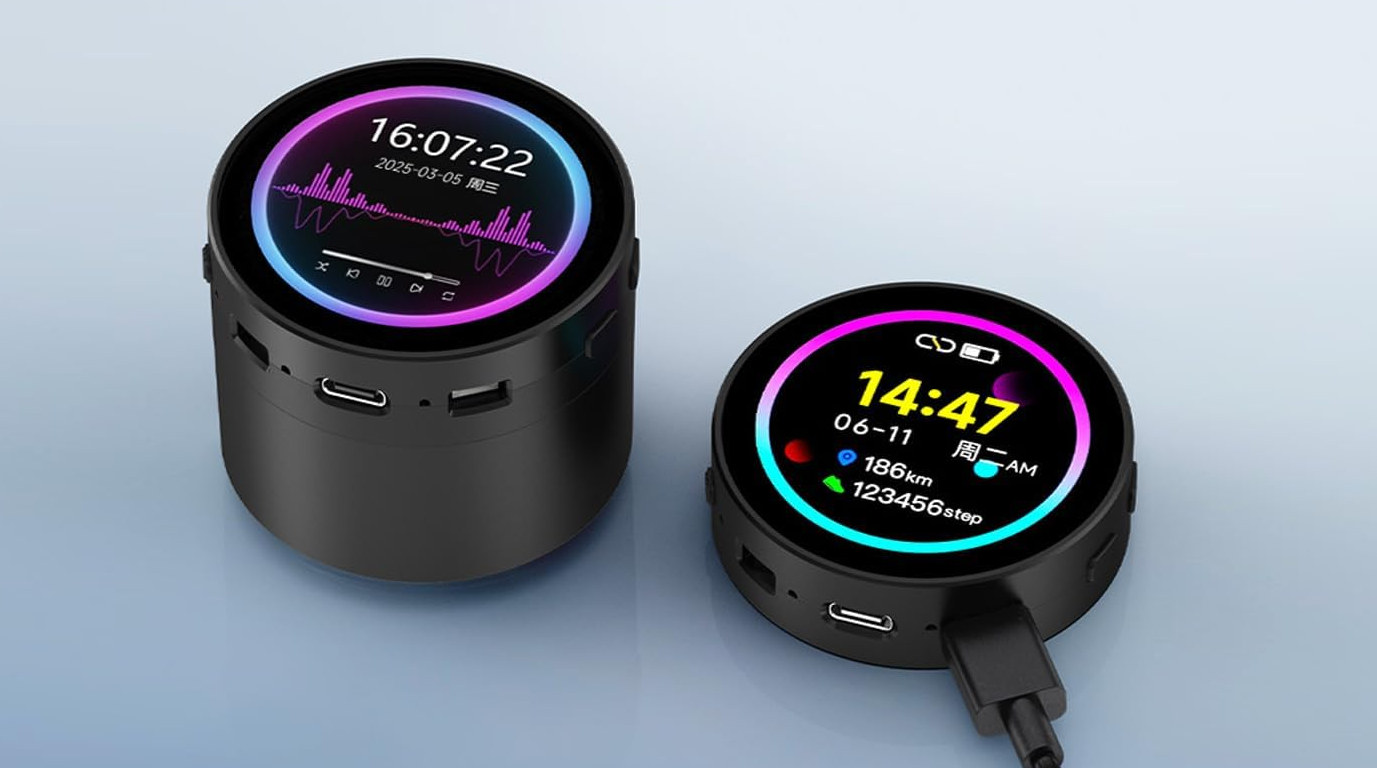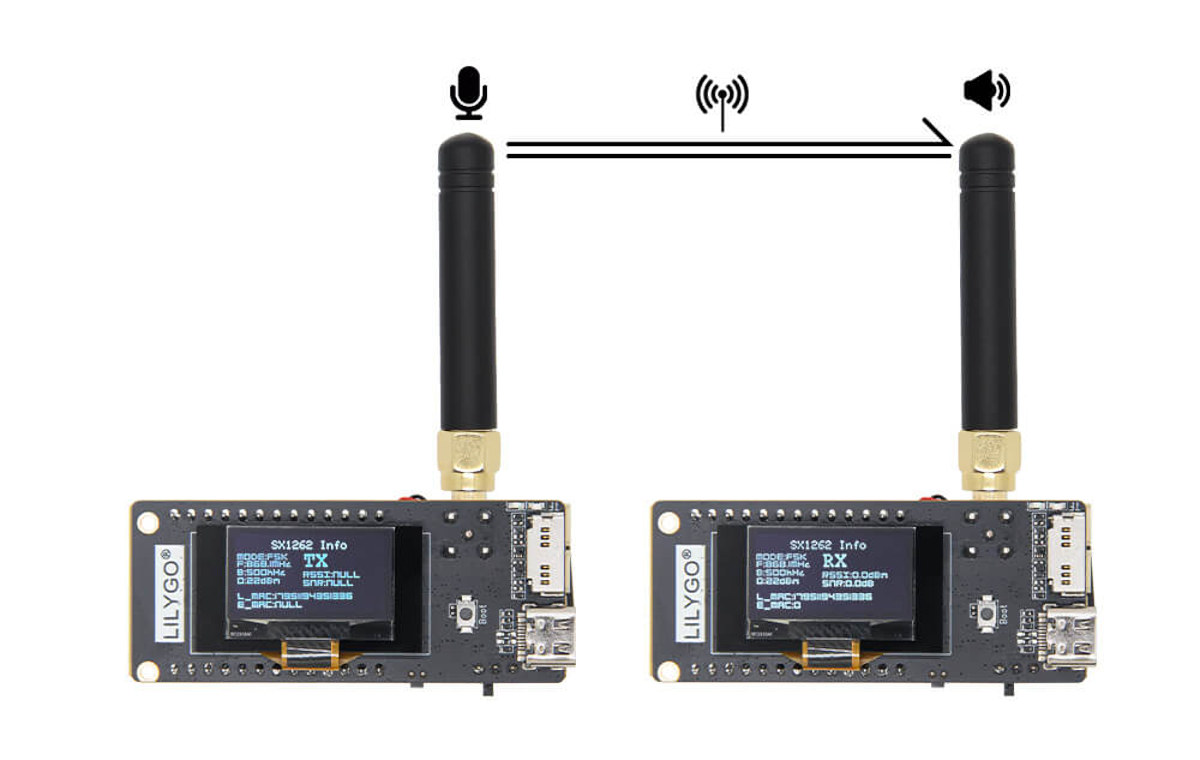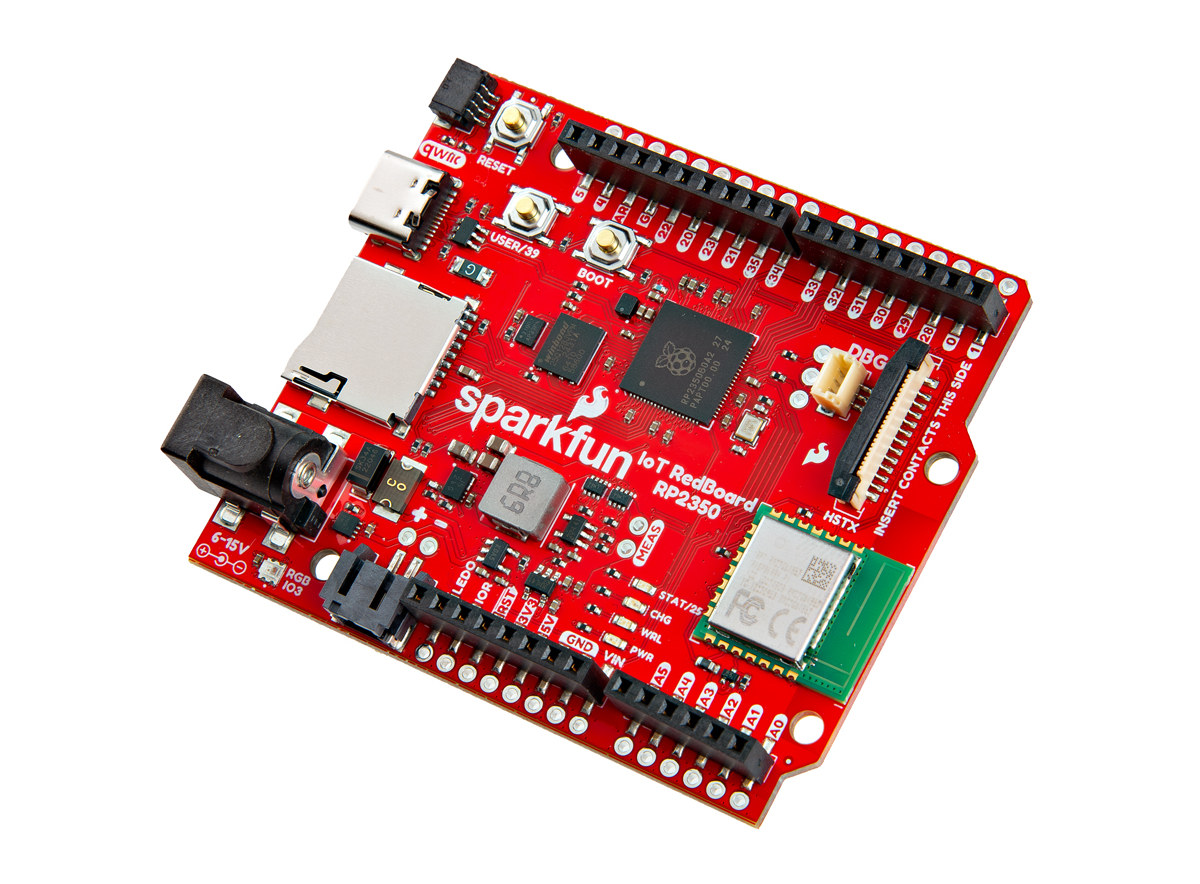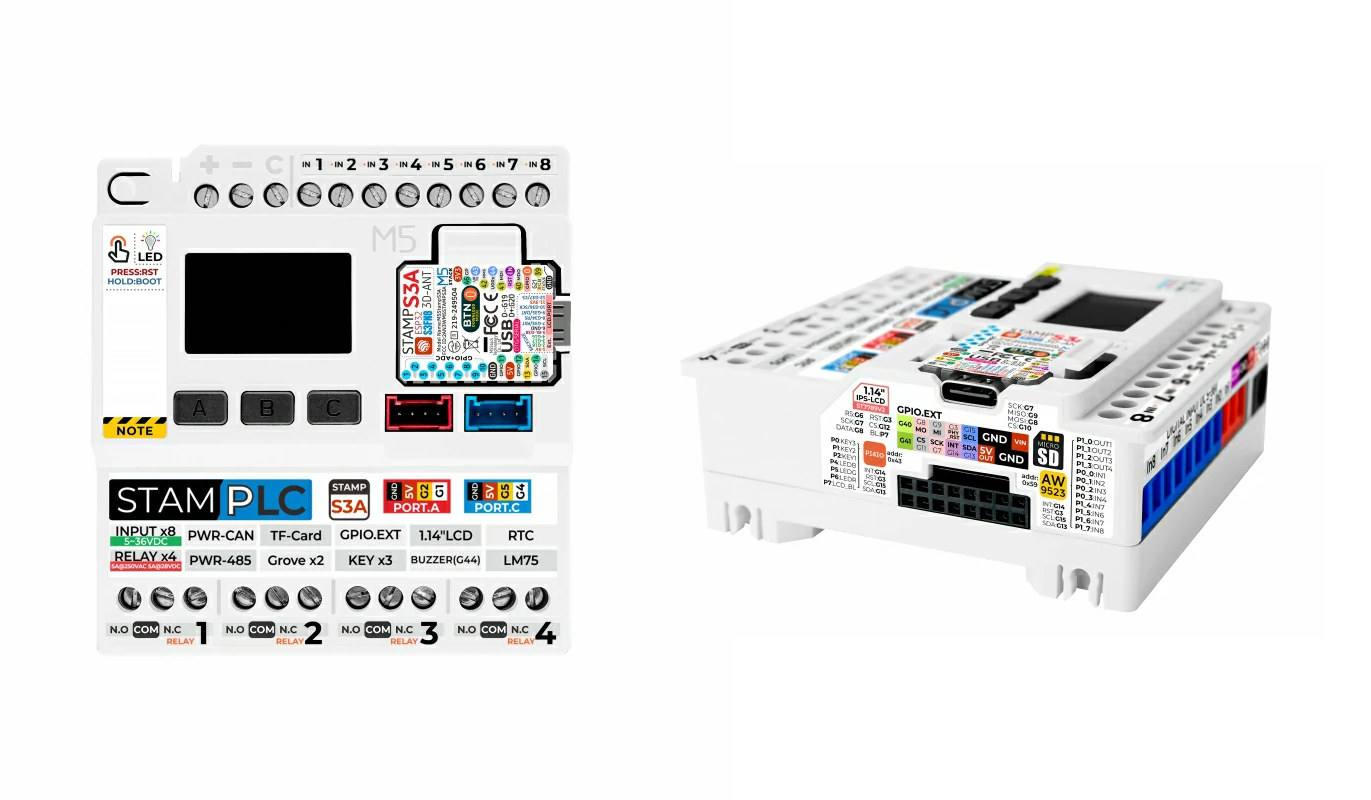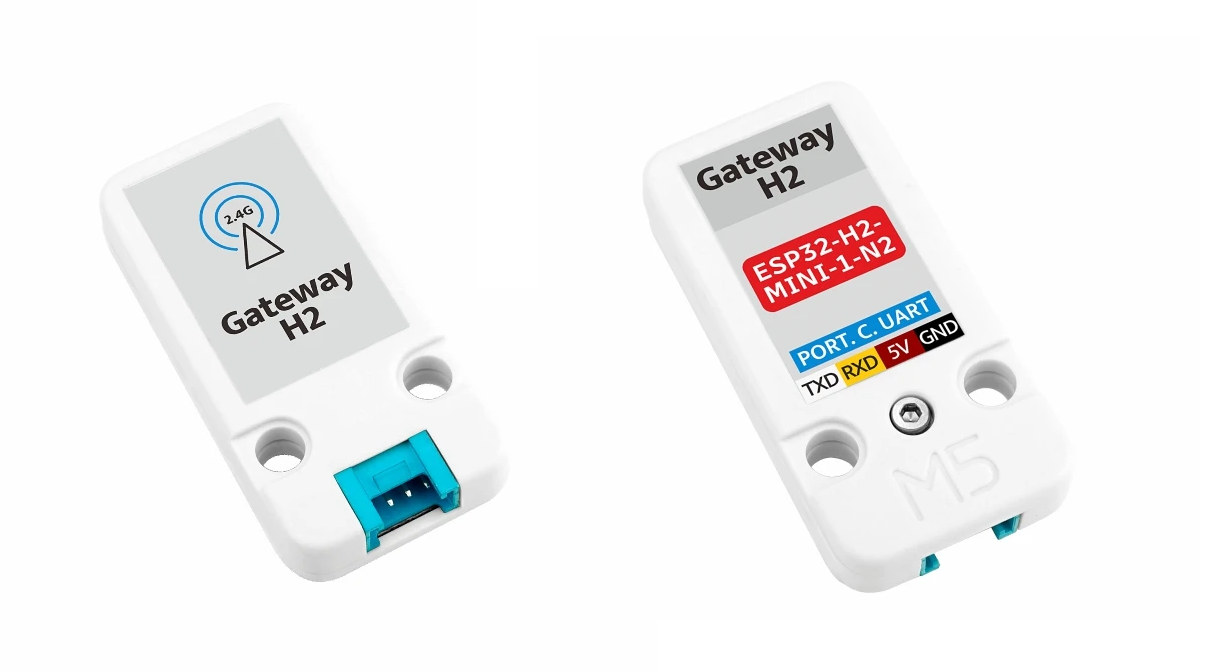LILYGO T-Deck Pro is a LoRa messenger based on an ESP32-S3 WiFi 4 and Bluetooth 5.x SoC, and offered with a 3.1-inch e-paper display with touchscreen, a Blackberry-like QWERTY keyboard, a GPS module, speaker, microphone, and a 3.5mm audio, as well as IMU and light sensors. It builds upon the T-Deck Plus design, but replacing the 2.8-inch IPS display with a 3.1-inch e-paper display allows for a slimmer design and should offer longer battery life despite the smaller 1,400 mAh battery used in the new model. Two versions of the T-Deck Pro are available: one with a Simcom 4G LTE modem and a cheaper one with a PCM5102A audio codec. LILYGO T-Deck Pro specifications: SoC – ESP32-S3FN16R8 CPU – Dual-core Tensilica LX7 microcontroller @ up to 240 MHz 2.4 GHz 802.11n WiFi 4 and Bluetooth 5.0 LE connectivity Memory – 8MB PSRAM Storage – 16MB SPI flash Storage – MicroSD card […]
ESP LowCode Matter splits system and application firmware for simpler ESP32 device development
Espressif released the ESP ZeroCode web application in the summer of 2023 to create custom Matter-certifiable firmware for ESP32 targets. However, if your application requires some more customization, but you don’t have the budget or need for a software engineering team, the company has now launched ESP LowCode Matter. It retains most of the simplicity of ESP ZeroCode, but also provides the ability to further customize the application without having to use the ESP Matter SDK, which requires more advanced coding skills to build your own firmware. The ESP LowCode Matter divides firmware into two components to simplify the development, maintenance, and certification process: System Firmware – Managed by Espressif, handling the Matter protocol, wireless stacks, OTA updates, and security management. Application Firmware – Developed by device makers, focusing on hardware interfacing, event and state indication, and user interaction. Development is done right in the web browser thanks to VS […]
ESP32-S3 Smart Audio devkit integrates 1.8-inch round touch LCD, microphone, optional battery and speaker box
Waveshare ESP32-S3-Touch-LCD-1.85C is an ESP32-S3 development kit with a 1.85-inch round touchscreen display with 360×360 resolution, support for Wi-Fi & Bluetooth BLE 5, and a built-in microphone. There’s also the ESP32-S3-Touch-LCD-1.85C-BOX with the same specifications, but an additional box with a speaker and a 3.7V battery. Both versions come with 16MB SPI flash, a microSD card slot, a USB-C port, a few buttons, GPIO and I2C expansion headers, and can be used as music players, smart speakers, HMI solutions, etc… It’s not quite the first ESP32-S3 audio + display devkit we’ve covered, as Waveshare introduced the ESP32-S3-Touch-AMOLED-1.8 earlier this year with a squared AMOLED display, and Wireless Tag launched the ESP32 Agent Dev Kit to interface with LLMs. ESP32-S3-Touch-LCD-1.85C specifications: SoC – Espressif ESP32-S3R8 CPU – Dual-core Tensilica LX7 microcontroller up to 240 MHz with vector instructions for AI acceleration Memory – 8MB PSRAM Wireless – WiFi 4 and Bluetooth […]
A LoRa-based Walkie-Talkie? Meet LILYGO T3-S3 MVSR LoRa voice communication kit
With its low-power, long-range capabilities, LoRa has been used for P2P and Mesh messaging with firmware like MeshTastic, but due to its limited bandwidth, we haven’t seen quite as many LoRa audio applications. This has not stopped LILYGO from designing the T3-S3 MVSR LoRa voice communication kit, integrating LoRa radio, a microphone, and a speaker to use the board as a walkie-talkie solution working over Semtech SX1262 or SX1280 RF transceiver. LILYGO T3-S3 MVSR specifications: SoC – Espressif Systems ESP32-S3FH4R2 CPU – Dual-core Tensilica LX7 microcontroller @ up to 240 MHz Wireless – 2.4 GHz 802.11n WiFi 4 and Bluetooth 5.0 LE connectivity Memory – 2MB PSRAM Storage – 4MB SPI flash Storage – MicroSD card slot Display – 0.96-inch 128×64 OLED display with SSD1306 I2C driver Audio MAX98357A Speaker MSM261S4030HOR Microphone LoRa module (one or the other) LORA32 SX1262 with 868MHz or 915 MHz radio LoRa 2.4G module based […]
Shelly launches Gen4 multi-protocol smart switch family with Wi-Fi, Bluetooth, Zigbee, and Matter
Shelly Group has just launched its Gen4 multi-protocol smart switch family supporting Wi-Fi, Bluetooth, Zigbee, and Matter protocols for the Smart Home. The company specifically introduced five new products: the Shelly 1 Gen4 one-channel, dry contact smart switch, the Shelly 1PM Gen4 smart switch with power monitoring, Shelly 1 Mini Gen4 compact smart switch for lights and small appliances, the Shelly 1PM Mini Gen4 compact smart switch with power metering, and the upcoming Shelly EM Mini Gen4 energy meter. Let’s have a quick at each product. Shelly 1 Gen4 smart switch Shelly 1 Gen4 specifications: Wireless SoC – ESP-Shelly-C68F Based on ESP32-C6 RISC-V SoC Storage – 8MB flash Wireless – 2.4 GHz WiFi 6, Bluetooth 4.2, and 802.15.4 radio for Zigbee and Matter Wireless parameters WiFi 6 Max. RF power – < 20 dBm Range – Up to 30m indoors, 50m outdoors Bluetooth 4.2 Max. RF power – < 4 […]
SparkFun IoT RedBoard – Raspberry Pi RP2350 or ESP32 WiFi & Bluetooth boards with Arduino UNO R4 form factor
SparkFun has just launched the “IoT RedBoard – RP2350” and “IoT RedBoard – ESP32” boards with Arduino UNO R4 form factor based on respectively Raspberry Pi RP2350B + RM2 wireless module and ESP32-WROOM-32E WiFi and Bluetooth module. Both boards feature Arduino UNO headers and a Qwiic connector for expansion, a microSD card for storage, battery support, USB and DC jack power input, plus a few buttons and LEDs. The RP2350 board also adds an HSTX connector mainly useful for controlling HDMI or SPI displays. Sparkfun IoT RedBoard specifications: MCU sub-system and wireless RP2350 model MCU – Raspberry Pi RP2350B CPU Dual-core Arm Cortex-M33 @ 150 MHz with Arm Trust zone, Secure boot Dual-core RISC-V Hazard3 @ 150 MHz Up to two cores can be used at any given time Memory – 520 KB on-chip SRAM Memory – 8MB PSRAM Storage – 16MB Flash Wireless module – Raspberry Pi RM2 2.4 […]
M5Stack StamPLC – An ESP32-S3-based PLC with opto-isolated inputs, relay ouputs, RS485, CAN Bus, and more
“M5Stamp PLC Controller with M5StampS3” or just “M5Stack StamPLC” is a programmable logic controller (PLC) based on the StampS3A ESP32-S3 wireless module and offering 8 opto-isolated digital inputs, 4 relay outputs supporting both AC and DC loads, plus RS485 and CAN Bus interfaces. The DIN Rail IoT controller also features a 1.14-inch color display, a RESET/BOOT button, 3 user buttons, and a buzzer or user interaction. The M5Stack StamPLC also integrates an LM75 temperature sensor and an INA226 voltage/current sensor, as well as a microSD card slot for data storage, and it can take a wide voltage input between 6 and 36V DC. M5Stack StamPLC specfications: Control Module – StampS3A (similar to M5Stamp S3) SoC – Espressif Systems ESP32-S3FN8 CPU – Dual-core 32-bit Xtensa LX7 microcontroller with AI vector instructions up to 240MHz, RISC-V ULP co-processor Memory – 512KB SRAM Storage- 8MB flash Wireless – 2.4GHz WiFi 4 (802.11b/g/n), Bluetooth […]
M5Stack Unit Gateway H2 – A tiny ESP32-H2 Thread/Zigbee gateway selling for $6.50
M5Stack’s Unit Gateway H2 is a small Thread/Zigbee gateway powered by the ESP32-H2-MINI-1 module with an 802.15.4 radio for Zigbee 3.0, Thread 1.3, and Matter connectivity. The Unit Gateway H2, also known as Gateway H2 Unit…, can operate as a gateway (e.g. a Thread Board Router) or a terminal device that communicates with a M5Stack device via serial/UART through the Grove interface. It also features a USB-C port for power, firmware flash, and debugging. M5Stack says it’s suitable for smart homes, environmental monitoring, sensor networks, and low-power wireless communication nodes. M5Stack Gateway H2 Unit specifications: Wireless module – ESP32-H2-MINI-1-N2 SoC – Espressif Systems ESP32-H2 CPU – 32-bit RISC-V SoC clocked at up to 96 MHz RAM and storage – 320 KB SRAM, 128 KB ROM, 4 KB LP memory Wireless – 802.15.4 radio with Zigbee 3.0, Thread 1.3, and Matter support. (Note: the ESP32-H2 also supports Bluetooth 5.2 LE/Mesh, […]


